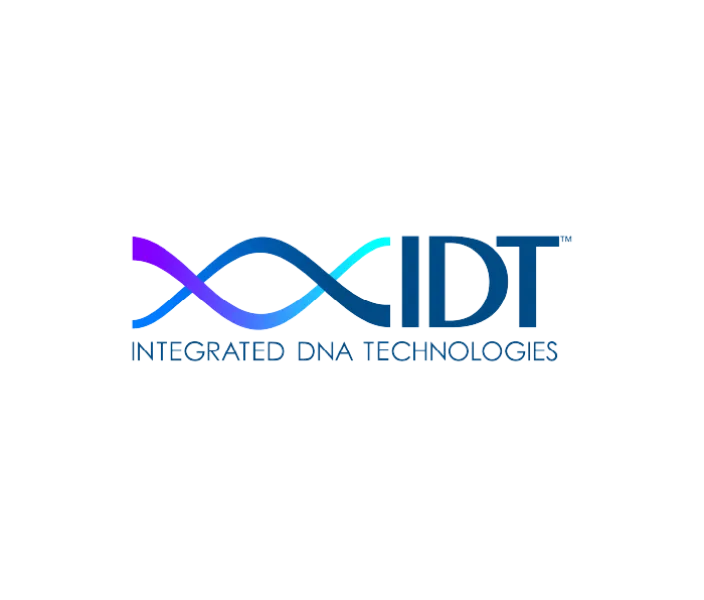
IDT and Hamilton Partner to Automate NGS Workflows, Accelerating Biomarker and Genomic Discovery
Integrated DNA Technologies (IDT), a global leader in genomics solutions, has announced a new strategic partnership with precision laboratory automation pioneer Hamilton (Hamilton Company and Hamilton Bonaduz AG) to deliver a fully automated, customizable next generation sequencing (NGS) solution—from sample to answer. This collaboration marks a significant step toward enabling researchers to accelerate comprehensive genomic profiling (CGP), biomarker discovery, and translational research through the integration of IDT’s broad portfolio of NGS reagents and assays with Hamilton’s world-class automation systems.
The global partnership between IDT and Hamilton aims to co-develop automation scripts and workflows for IDT’s xGen™ and Archer™ NGS product lines, optimized for use on Hamilton’s Microlab® STAR™ and NIMBUS® liquid handling platforms. Together, the companies seek to empower laboratories with robust, reproducible, and scalable automated workflows that eliminate manual bottlenecks, reduce variability, and deliver consistent results in complex genomic applications such as oncology, biomarker identification, and precision medicine research.
A Strategic Alliance for Seamless Genomic Innovation
The collaboration between IDT and Hamilton is rooted in a shared vision: to give scientists greater control and flexibility in how they approach genomic discovery. Through the partnership, researchers can now access validated automation-ready protocols that combine IDT’s cutting-edge reagents and assay chemistries with Hamilton’s precision robotics, bringing unmatched reliability and scalability to NGS workflows.
“At IDT, we believe that innovation happens when scientists have the freedom to design workflows that fit their research needs,” said Ajay Gannerkote, President of IDT. “By pairing IDT’s flexible NGS solutions with Hamilton’s automation expertise, we’re removing constraints that may arise from one-size-fits-all approaches so labs can consistently and reliably accelerate their discoveries with confidence, precision, and speed, at whatever scale their work demands.”
Hamilton’s Vice President of Scientific Strategy and Market Development, Michael Mouradian, echoed this sentiment, emphasizing how automation can elevate the pace and precision of modern genomics. “Hamilton is proud to partner with IDT to bring flexible, automation-ready NGS workflows to the global research community,” Mouradian said. “By combining Hamilton’s precision engineering and trusted liquid handling platforms with IDT’s innovative assay solutions, we are enabling laboratories to achieve greater scalability, consistency, and efficiency in their genomic discoveries. The partnership reflects Hamilton’s commitment to empowering scientists with solutions that accelerate breakthroughs in research and beyond.”
Bringing Automation and Accuracy to Every Step of the Workflow
Next generation sequencing (NGS) has become a cornerstone of modern genomics, with applications spanning oncology, infectious disease, hereditary genetics, and molecular diagnostics. Yet despite its transformative potential, NGS workflows often face challenges related to manual pipetting, reagent handling, and data reproducibility—particularly as research programs scale.
By integrating IDT’s advanced xGen™ library preparation and target enrichment solutions, and Archer™ fusion and variant detection assays, with Hamilton’s automated liquid handling systems, laboratories can now streamline sample preparation and processing with enhanced precision. The result is greater reproducibility and data quality, faster turnaround times, and the flexibility to tailor workflows according to specific project requirements.
Hamilton’s Microlab® STAR™ and NIMBUS® platforms are renowned for their accuracy and adaptability. These systems are designed to automate complex liquid handling tasks while maintaining exceptional reproducibility across high-throughput assays. The integration of IDT’s customizable NGS chemistry into these automated systems provides researchers with ready-to-use, validated scripts that simplify setup, reduce training time, and enhance throughput without sacrificing data quality.
Accelerating Comprehensive Genomic Profiling (CGP)
One of the major focuses of this collaboration is the automation of Comprehensive Genomic Profiling (CGP) workflows—a powerful approach that allows researchers to analyze hundreds of genes simultaneously to detect key genetic mutations, fusions, and alterations associated with cancer.
Through automated integration, IDT and Hamilton aim to make CGP more accessible, reproducible, and scalable for research institutions worldwide. This development enables researchers to identify biomarkers critical to cancer research, therapeutic response, and drug development with greater speed and accuracy.
By automating time-intensive steps such as library preparation, target capture, and sample normalization, scientists can significantly shorten turnaround times from sample collection to data generation. This efficiency not only accelerates discovery but also enhances consistency across large-scale studies where reproducibility is paramount.
Enabling Scalable and Modular NGS Solutions
This partnership underscores IDT’s commitment to offering modular and scalable solutions that evolve with the changing demands of genomics research. The company’s xGen™ NGS portfolio encompasses a wide range of target enrichment panels, library preparation kits, and indexing solutions that allow scientists to design and customize assays for their specific research needs.

Meanwhile, Archer™ NGS assays bring unique molecular barcode and anchored multiplex PCR (AMP™) technology, offering precise detection of known and novel genetic variants. Together, these product lines empower users to build flexible, future-ready sequencing workflows capable of supporting solid tumor and blood cancer research, infectious disease studies, and hereditary condition analysis.
Hamilton’s automation platforms provide the ideal complement to IDT’s chemistry innovations, offering modular configurations that can adapt to a variety of throughput requirements. Whether a lab processes dozens or hundreds of samples daily, Hamilton’s systems deliver consistent performance, traceability, and accuracy across runs—key to maintaining confidence in data quality and reproducibility.
Transforming the Research Experience
The IDT–Hamilton collaboration aims to redefine the research experience by shifting focus away from manual pipetting and protocol troubleshooting to scientific interpretation and discovery. For laboratories, this means:
- Improved efficiency: Automated workflows significantly reduce hands-on time and human error.
- Enhanced reproducibility: Precision robotics ensure consistent liquid handling and uniform results across replicates and projects.
- Scalability: From small academic labs to large biopharmaceutical enterprises, the combined platform supports projects of any size.
- Flexibility: Users can modify or expand workflows as research needs evolve, without the limitations of rigid systems.
- Confidence in results: Validated automation scripts minimize technical variability and increase data reliability.
By delivering these benefits, the partnership creates an end-to-end solution that allows researchers to transition seamlessly from experimental setup to data analysis, unlocking faster insights in precision medicine and translational research.
A Shared Vision for the Future of Genomics
The global collaboration between IDT and Hamilton is more than a technical integration—it’s a strategic alignment of two innovators working toward the same mission: accelerating genomic breakthroughs that improve human health.
As genomic research continues to evolve, automation will play a pivotal role in ensuring that laboratories can meet growing demands for throughput, accuracy, and reproducibility. This partnership lays the groundwork for future expansions, including automated protocols for new NGS assays and further integration of data-driven quality control systems.
Through this alliance, IDT strengthens its position as a comprehensive provider of end-to-end genomic solutions, from oligo synthesis and library preparation to target enrichment and assay design. Simultaneously, Hamilton reinforces its leadership in laboratory automation, continuing its tradition of advancing precision science through innovative engineering.
Ultimately, by merging automation and assay innovation, IDT and Hamilton are empowering scientists around the world to focus on what matters most—discovery.





